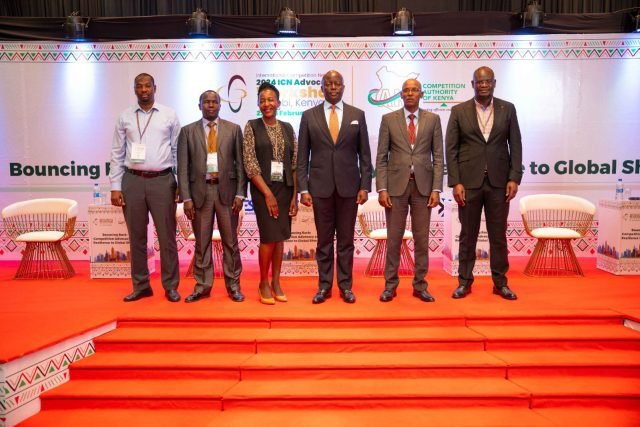The Competition Authority of Kenya (CAK) has called for enhanced collaboration with other regional competition watchdogs in handling cross-border anti-competitive practices with the adoption of the African Continental Free Trade Area (AfCFTA).
Speaking at this year’s International Competition Network Advocacy Workshop in Nairobi, CAK Chairman Shaka Kariuki said through its interventions in various sectors, the authority has facilitated recovery of over Ksh 3 billion over the past five years, thereby securing the livelihoods of thousands of Kenyans
“We continue to protect SMEs from abuse by buyers who take advantage of their powerful positions to extract terms that are highly advantageous to them and detrimental to the survival of our small businesses,” said Karuki.
Among high profile anti-competition cases the authority has handled included the sanctioning of a cartel that involved four major paint manufacturers in the country where consumers registered savings of Ksh 830 million in the four years to 2022.
CAK says another Ksh 4.6 billion was realized in consumer savings between 2016 and 2021 by consumers of cement products following its intervention to extinguish anti-competitive conduct.
“In the coming years, we are committed to ensuring that Kenyans enjoy the full benefits of competition by supporting innovation, expanded choice, and high quality products and services,” added Kariuki.
According to Karuki, regional collaborations with other competition authorities is critical in order to enhance efficiency, transparency and predictability when handling matters with a cross-border dimension in order to promoted investment, while sanctioning anti-competitive conduct appropriately.
ICN Has facilitated CAK with reference material and work products that have enhanced the quality, transparency and predictability of its mandate execution.
Kariuki lauded the workshop for presenting a unique opportunity for competition practitioners, as well as other key stakeholders, to engage in constructive discourse, learn from one another’s experiences, and espouse strategies that will drive positive change in respective jurisdictions.
“By leveraging our collective expertise and diverse perspectives, we can develop solutions that address the complex challenges of today’s global marketplace.”







